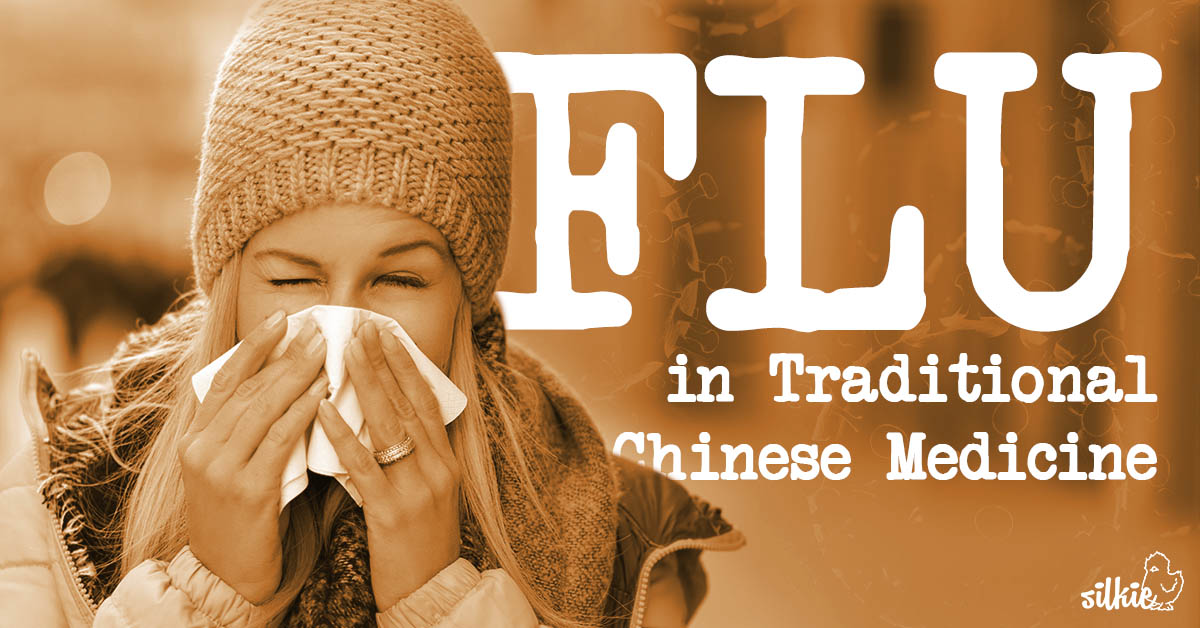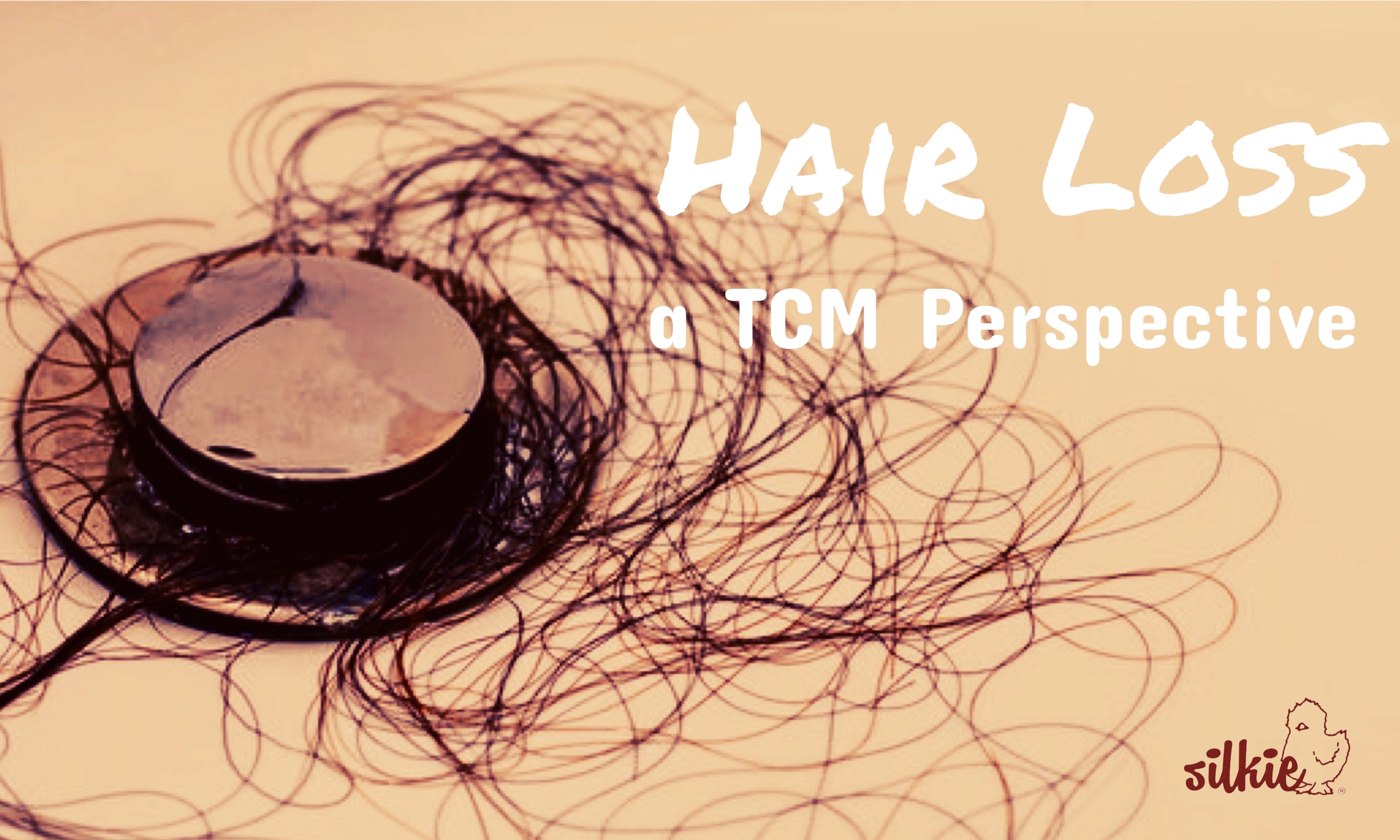Flu

By Dr. Patricia Jade Nguyen
Flu season is here, and patients are asking for my views on the flu shot. I never get the flu shot for 2 reasons. The flu virus is constantly changing, and there are many different viral strains that can cause illness. The flu shot covers 3-4 specific strains, so the probability of getting sick is only slightly reduced. My primary reason for not getting the shot is I can both prevent and treat the flu with Chinese medicine. I keep a cold and flu herbal kit on hand during the winter months. Silkie Herbs offers an excellent kit with several herbal formulas that address all stages from the onset of a cold (slight sniffle, sore throat, and congestion) to the worst of the flu (fever and chills, coughing, body aches, vomiting, and diarrhea). An herbal formula to boost your immunity is also included because it is best not to get sick at all.
Prevention is better than a thousand cures. In that respect, I will discuss the Chinese medical perspective on maintaining a strong immune system to defend against the cold and flu.
1. Keep the body comfortably warm. Can you recall your mom saying, “Put your jacket on! You’ll catch a cold!” There is wisdom in her words. Why do you think the expression is “catching a cold”? And why is the flu most prevalent during wintertime? Technically, cold weather does not make you sick; a virus does. Excessive exposure to cold weather that causes chilling of the body, however, makes you more prone to getting sick because it lowers your immune system. When you feel cold, your body has to spend a vast amount of energy to warm you. Energy is diverted to warm your bones, muscles, and skin, so there is less energy to support the immune system in fighting off pathogens such as the rhinovirus which causes the cold and the nastier influenza virus which causes the more severe symptoms of the flu. Therefore, to keep the immune system at maximum strength, do not allow the body to get chilled:
- Be conscious and prepared for changes in temperature, pressure, and humidity. In southern California, the weather is often warm during the day but drops in the evening. Near the beach, the nights can also be damp and windy. Dress appropriately and keep a sweater in your bag or car.
- If you live in a cold area, always zip up to keep your core warm even if you are just dashing out for a few minutes. Use hats, earmuffs, or scarves to keep your head, ears, and neck warm and protected especially if you are prone to head colds. Cold and wind easily enter through the head because your ears, nose, and mouth are all portals into the body.
- Keep your feet warm. Besides the head, you can also lose a great deal of heat through your feet. If your floors are cold and uncarpeted, be diligent about wearing socks or slippers to keep your feet warm.
- Be cautious of washing your hands with cold water. Warm water is better. Always dry your hands completely. Damp hands take longer to warm.
- Do not sit on anything cold or wet. Aluminum stadium bleachers, as well as metal chairs, quickly suck heat out of you. The coolness of wet grass or damp sand can penetrate straight through your skin. If your car has seat warmers, use them.
- Change out of wet clothing as soon as possible. Whether you get wet from the weather or from exercising, wearing wet clothing for an extended period of time will quickly chill the body and increase your chances of getting sick. When you exercise vigorously, your pores open to emit sweat. When the pores are open, the body is more susceptible to drafts and you easily become stiff.
- Avoid icy drinks and cold foods. Consuming cold items chills the body from the inside out. Your body has to expend energy to warm the cold fluid or food at the expense of diverting energy away from the immune system.
- If you do get chilled, try to warm yourself as quickly as possible: drink something warm, even hot water will help. Eat a warm meal. Hot soup works great. A hot bath warms the whole body. If you have no access to external heat, generate your own through movement. Do a few squats, push-ups, or jumping jacks to get the blood moving.
2. Never go to bed with cold feet. You never want to go to bed with cold feet because you will spend half the night fighting the cold and therefore will not get good rest. If you do not sleep well, your immune system will be running on low power.
3. Shower at night instead of in the morning. A warm or hot shower opens the skin pores. As with exercising, when the skin pores are open, the body is subjected to the elements and chills more easily in the winter. Most people shower and rush outside to go to work. If you shower at night and go straight to bed, you limit the risk of external cold and wind entering through the skin. Additionally, a warm shower or bath will warm and relax your whole body and help you to sleep better at night. Whether you shower in the morning or at night, make sure you dry yourself completely from head to toe. Going outside or going to sleep with wet hair will increase your chances of getting sick.
4. Stretch or do light exercise in the morning. It can be daunting to get out of a warm bed in winter, especially if you keep your thermostat setting at a low temperature. Stretching or light exercise in the morning increases blood circulation, which warms the body and acclimates you to the cool morning air. Movement also stimulates the lymphatic system, an important part of the immune system. You can intentionally boot your immune system into gear with morning stretches or gentle exercise.
5. Eat properly. You need a ton of energy to get through the day. Your immune system also requires a significant amount of energy. If you skip meals, how can you properly fuel all body systems, such as the central nervous system (brain and nerves), musculoskeletal system (movement), and immune system (defense against sickness)? Eating a warm, nutritious breakfast is paramount to powering all systems to work the entire day. Enjoy lunch and a light dinner. Do not stuff yourself. Overeating damages the digestive system, which has the function of converting food into energy to support all other systems including the immune response. Try to eat a variety of foods to get a broad spectrum of nutrients and try to eat at the same time every day. This way your body gets into a regular rhythm of nourishment and expenditure of energy.
6. Rest and de-stress. When you are tired, rest. Overworking exhausts your energy supply, and thereby weakens the immune system. Stress activates the sympathetic system, the fight-or-flight response. The sympathetic system consumes an enormous amount of energy because breathing rate, heart rate, and blood pressure all increase while the entire body tenses. If you are stressed most of the time, then your sympathetic system is sucking energy away from your immune system. Stress is the root cause of many illnesses. You can alleviate your stress through daily activities. Eat leisurely, take a stroll, indulge in a hobby, or simply meditate by consciously slowing down your breathing a few minutes every day. If you are really stressed out, make an appointment for massage, acupuncture, or float therapy to shift out of the energy consuming "fight-or-flight” mode.
All preventative strategies listed above deal with maintaining sufficient energy levels to properly power the immune system. Getting chilled, not sleeping well, not eating properly, overworking, and stressing drain the essential energy that the body needs to defend itself. All life processes depend on energy and its proper movement. Thus, supporting the function of energy in physiology is the primary principle of Chinese medicine in preventing and treating illness.
If you would like to learn more about the Flu and TCM, schedule an online consultation with one of our herbalists. You can attend this consultation from the convenience of your home by joining a video chat from your computer. Click here to schedule an appointment.
Read what others have to say about Silkie on Yelp
Read Katarina D.'s review of silkie on Yelp












